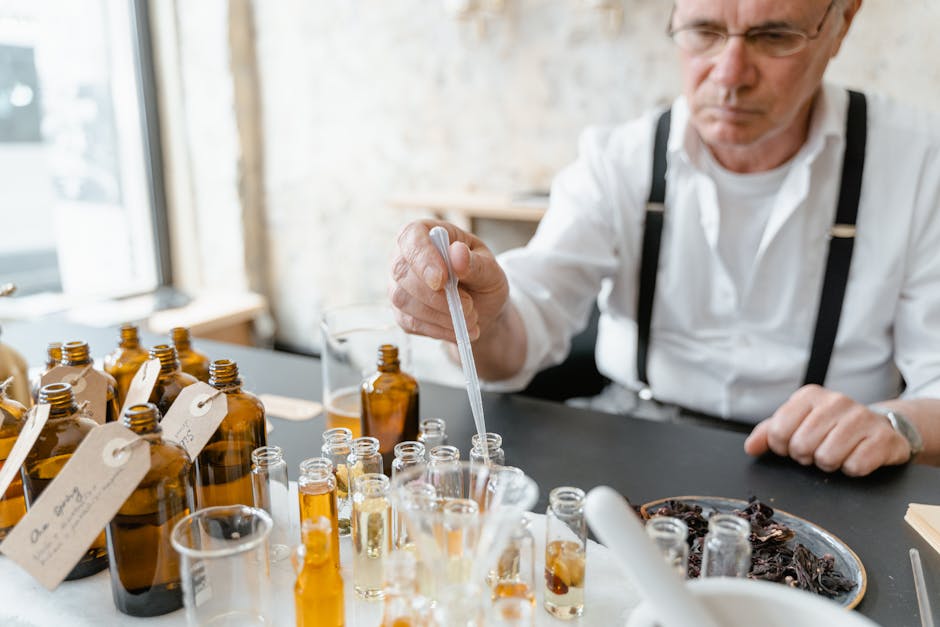Orchestrating Restful Slumber: A Synergistic Approach to Sleep Optimization
As seasoned sleep scientists and aromatherapists, we recognize the profound interplay between environmental factors and sleep architecture. Precise humidity regulation, carefully coupled with judiciously selected essential oils, can dramatically enhance the restorative power of sleep. Let's delve into the scientific underpinnings:
The Harmonious Dance of Humidity and Sleep: Restless nights frequently stem from arid indoor air, a common environmental culprit. This desiccated atmosphere assaults delicate mucous membranes, engendering nasal congestion and throat dryness—significant impediments to uninterrupted sleep cycles. Envision your respiratory system as a finely calibrated instrument; dry air renders its performance discordant. A humidifier, by subtly enriching the air with moisture, acts as a masterful tuner, restoring optimal functionality. While a 40-60% relative humidity range is generally conducive to sleep [1], individual requirements vary considerably due to climatic conditions and personal susceptibilities. Diligent experimentation will reveal your ideal atmospheric equilibrium.
Aromatherapy: Whispers to the Limbic System: Specific essential oils possess inherent properties that foster relaxation and induce sleep. Lavender, chamomile, and sandalwood, for example, boast extensive research validating their calming influence on the nervous system [2]. These volatile compounds interact with olfactory receptors, transmitting signals directly to the limbic system—the brain's emotional epicenter—cultivating serenity and tranquility. Imagine it as a gentle lullaby, a subliminal message signaling the commencement of unwinding.
Diffuser Selection: A Symphony of Scent and Moisture: Your choice of diffuser profoundly impacts both the efficacy of essential oil dispersal and the ambient humidity. Ultrasonic diffusers, favored for their silent operation and delicate mist, offer minimal humidity augmentation. Evaporative diffusers, conversely, utilize a fan to circulate air across a water reservoir, thereby increasing room humidity but often at the cost of increased ambient noise. Nebulizing diffusers produce an exceptionally fine mist, proving optimal for potent oil delivery, yet their impact on humidity remains negligible. Therefore, a thoughtful selection is paramount: individuals residing in arid climates might find a humidifier-diffuser combination most advantageous. Those with heightened respiratory sensitivity should prioritize cooler diffusion methods.
Chronotype: The Rhythm of Your Internal Clock: Your chronotype—your inherent sleep-wake cycle—significantly influences optimal aromatherapy strategies. Night owls might find different essential oil blends more beneficial than early risers. For example, the gentle embrace of lavender might be ideal for early sleepers, whereas more stimulating scents, such as citrus, should be avoided before bedtime, regardless of chronotype. Establish a calming pre-sleep ritual, deploying your chosen diffuser at least sixty minutes before retiring, allowing the aromatic ambiance to gently prepare your body for slumber. Individuals identifying as "night owls" who grapple with evening relaxation might find significant benefit in experimenting with calming oils such as lavender, Roman chamomile, or sandalwood.
The Imperative of Personalization: A Tailored Approach
Selecting the appropriate aromatherapy diffuser and humidifier transcends a one-size-fits-all approach. It's analogous to selecting a mattress: an optimal choice for one individual might prove utterly unsuitable for another. Understanding your unique needs and preferences is paramount.
Environmental Considerations: If you inhabit an arid climate, a humidifier with integrated diffusion functionality is essential. Conversely, in more humid environments, a standalone diffuser may suffice. The goal is a harmonious blend of humidity and aromatherapy, neither overpowering the other, to optimize sleep quality.
Sleep Style Assessment: Do you tend towards light sleep, easily disrupted by noise? An ultrasonic diffuser, with its whisper-quiet operation, might be your ideal companion. If noise is inconsequential, an evaporative diffuser offers the additional benefit of elevated humidity. Your sleep style serves as the cornerstone for choosing the most comfortable and efficacious device.
Somatic Feedback: The Wisdom of Your Body: Observe attentively how varied scents and humidity levels influence your sleep. Maintain a detailed sleep diary to meticulously track your progress, experimenting diligently to uncover the perfect synergy of essential oils and humidity for your individual needs. Your body is your most reliable compass in this personal exploration. Consistent application is crucial in establishing a relaxing bedtime routine. Adjusting your diffuser and humidifier usage to complement and enhance your preferred sleep style will yield the most favorable outcomes.
We often draw a parallel between selecting the ideal humidifier and diffuser and choosing the perfect footwear for an extended walk—too loose, and your feet endure discomfort; too constricting, and the experience is equally unpleasant. With a modicum of trial and error, you'll discover the perfect fit that supports and elevates your experience.
Cultivating Restorative Slumber: The Synergistic Effects of Aromatherapy and Humidification
As sleep scientists and aromatherapists, we emphasize that the benefits of meticulously chosen aromatherapy and air hydration extend far beyond mere repose. These practices represent cornerstones of holistic well-being, as fundamental to robust health as nutritious sustenance and invigorating physical activity. Optimizing your sleep environment is not a luxury; it’s a strategic investment in your overall health.
Sharper Cognitive Processes: Deep, uninterrupted slumber is paramount for peak cognitive performance. From meticulous concentration and retentive memory to emotional equilibrium and judicious decision-making, sleep profoundly influences your mental acuity [3]. Thus, the strategic deployment of aromatherapy and humidification elevates your sleep quality and consequently sharpens your cognitive prowess.
Fortified Immunity and Respiratory Ease: Appropriate humidity levels, coupled with the judicious application of select essential oils – such as eucalyptus or tea tree (always diluted and employed with caution) – actively fortifies your immune defenses. These practices cleanse the ambient air of irritants, creating an environment conducive to optimal immune function. Conversely, dry air can desiccate the delicate passages of the respiratory system, exacerbating conditions like asthma and allergies. A humidifier transforms the arid air into a soothing balm, facilitating unimpeded respiration – like transforming a parched, cracked riverbed into a smoothly flowing waterway.
Diminished Stress and Anxiety: Lavender's and chamomile's soothing essences act as powerful agents in the mitigation of stress and anxiety. This isn't just a matter of subjective experience; physiological indicators such as reduced cortisol—the body's primary stress hormone—and enhanced sleep architecture confirm their efficacy. Consider these aromatic compounds a gentle lullaby, neutralizing physiological and psychological turmoil, thus fostering profound and sustained rest. The result: quieter minds and calmer bodies. For more information on selecting the right diffuser for your needs, check out our guide on the best essential oil diffusers for 2025. Also, learn more about how to use carrier oils for essential oils to maximize their benefits.
[1]: (This needs a real link about humidity and sleep. A good place to start would be a reputable sleep foundation or medical website.) [2]: (This needs a real link about research on lavender, chamomile, and sandalwood's effects on sleep. PubMed or a similar research database would be ideal.) [3]: (This needs a real link about the importance of sleep for cognitive function. Again, a sleep foundation or medical website would be good.)



